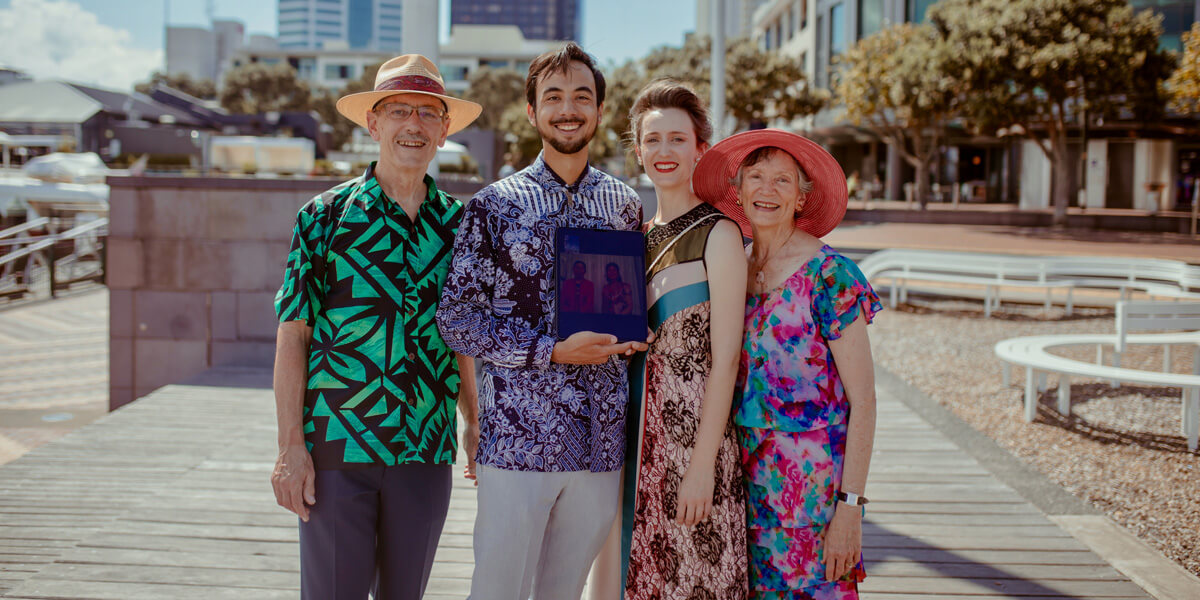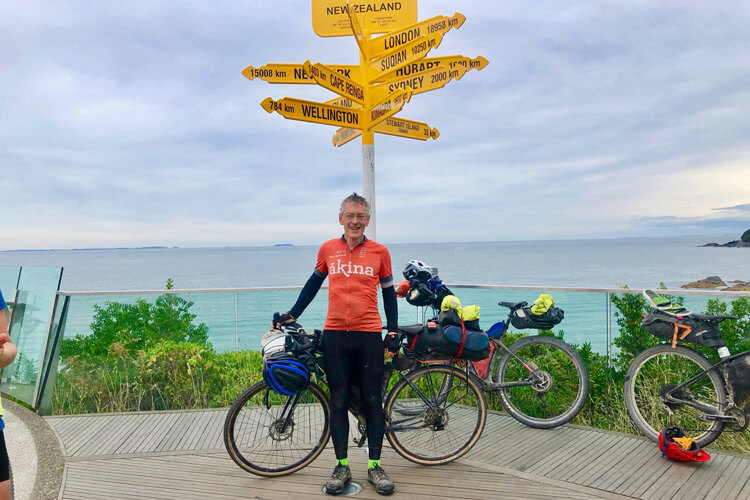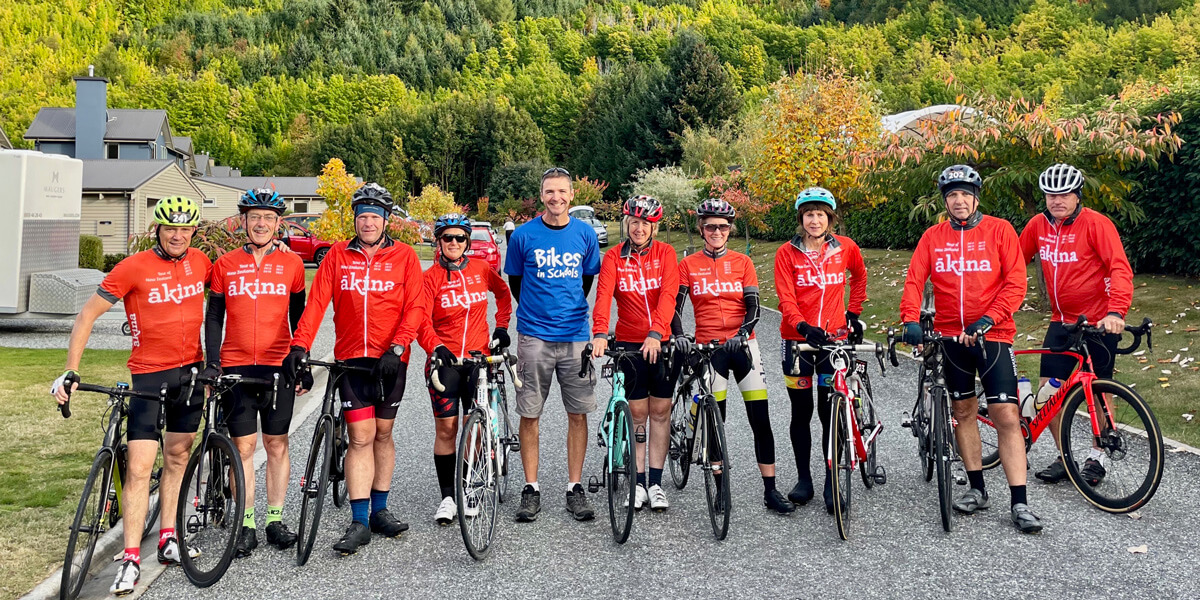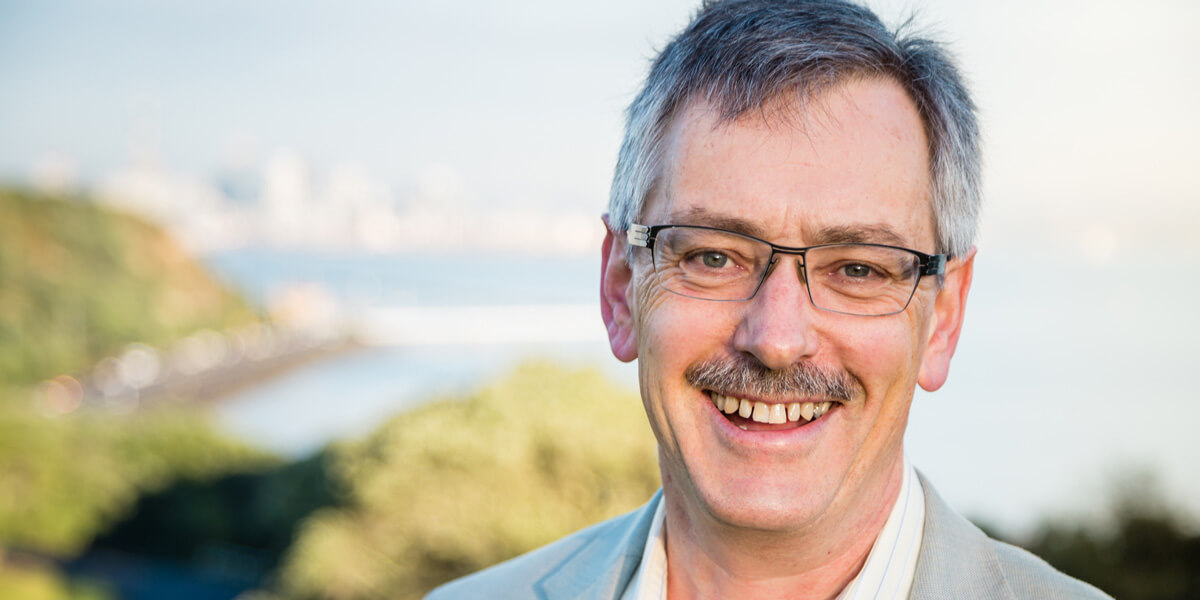Rod Oram ’70 stepped out of the Denver airport and looked to the west. He couldn’t help but yell, “Mountains!” He didn’t realize he was only just seeing the foothills.
It was September 1969, and the 18-year-old from England was coming to the United States for the very first time, to spend his senior year of high school at Colorado Academy.
A CA teacher picked him up at the airport and brought him back to the residential campus. Once there, Oram took the first opportunity he got to go outside and look for a hill. He climbed up and looked around—at the lush school grounds, at the big Colorado sky, at his new home.
“It was perfect,” Oram says, remembering the transformative experience of his youth.
Since his senior year in the Mile High City, Oram has forged a long and prestigious career as an international business journalist. For nearly 50 years, he’s been “paid to find things out.” But like the mountains behind the foothills, his work goes much deeper than that.
“I’m trying to work out how we can best respond to the opportunities and threats the world throws at us,” writes Oram in a piece for the New Zealand media outlet Newsroom. “‘Following the money’ helps explain where and why human activity flourishes or fails.”
In fall 2021, he’s following the money from his home in New Zealand to the 26th United Nations Conference of the Parties in Glasgow, Scotland. His focus: climate negotiations.

A scale of change humans have never seen
“They are utterly crucial negotiations,” he says of the event, which brings together diplomats and climate experts from around the world to work toward a goal of limiting global warming to 1.5 degrees Celsius.
“To do so, we have to act very boldly, deeply, and quickly to cut emissions,” says Oram, who sees his role as a journalist in today’s world as supporting the work of those engaged in climate crisis issues.
Oram will likely be the only journalist there from New Zealand. He will go through an expensive, time-consuming, and complicated gauntlet of pandemic protocol, COVID-19 testing, and mandatory quarantining in order to make the trip to the United Kingdom and return home to an island nation that has seen fewer than 5,000 total COVID-19 cases.
“Despite all the risks and hurdles of COVID, I’m determined to go report on the negotiations, because the stakes for humanity are so high,” he says. “We’ve got to achieve a speed, a scale, and a complexity of change far greater than humanity’s ever achieved before.”
He knows that resolving the many interdependent crises—including climate change and a breakdown in social and economic and political systems—can be a task that feels both Herculean and Sisyphean.
“I’m trying to explain what’s going on the best I can in order to encourage people not to give up,” he says.

Journalism, sustainable development, and cycling
To these Herculean and Sisyphean tasks, Oram brings an intense curiosity, which he’s had ever since he can remember.
“I was this annoying, inquisitive kid,” he says, “always scurrying around and always asking questions: ‘What about this? Why that?’”
That inquisitiveness has served him well in writing and reporting. He has received accolades, including a Qantas Media Award and a New Zealand Shareholder Association Business Journalism Award. In 2019, he was named the New Zealand Journalist of the Year in the Australia & New Zealand Citi Journalism Awards for Excellence.
Oram worked for the Financial Times of London and other publications in Europe and North America before moving to New Zealand in 1997. Since then, he has contributed to Newsroom.co.nz, Radio New Zealand, Newstalk ZB, and The Sunday Star-Times.
He has also published two books and has been an adjunct business professor at Unitec Institute of Technology in Auckland.
And that’s not all.
Oram works on regional economic development projects and speaks publicly on deep sustainability, economics, innovation, and entrepreneurship. He was a founding trustee and a chairperson for the sustainability-focused Akina Foundation and was a member of the inaugural cohort of the Edmund Hillary Fellowship supporting impact ventures.
Last, but not least, Oram spends a lot of time on his bike, and writes about it: nz2050.nz. He has completed the Tour of New Zealand weeklong, 300-mile, charity cycling event six times.

A learning style that lasts a lifetime
This prolific writer, cyclist, and sustainability advocate didn’t always feel so happy and purposeful. On that long-ago September day when he arrived at CA, he was “depressed and a poor student.”
But a year—and two semesters of CA education—later, he was thriving.
“My year at CA picked me up and pointed me in the right direction,” says Oram, who attended CA through an English-Speaking Union Scholarship.
On a trip to Chicago organized by Glee Club Director David Woods, Oram visited Northwestern University and learned about its liberal arts tradition and its Medill School of Journalism. He applied, was accepted, and ultimately earned a bachelor’s degree, majoring in political science and economics, and a master’s in journalism—launching him into what is now a storied journalism career.
He’s grateful for the role CA played in his career, but also for how it engaged him in his education when he really needed it.
He remembers mornings at CA focused on academic work and afternoons full of extracurricular activities and opportunities for deeper study. He loved the weekly Senior book discussion group led by CA Headmaster Chuck Froelicher.
“Chuck was incredibly influential for me,” says Oram, who stayed in touch with Froelicher until his death in 2014 and made a special trip from New Zealand for his CA memorial.
And it wasn’t only the headmaster and choral director who had an impact on him, but all of the “wonderful teachers” at CA.
“The magical thing about CA was the iterative style of the education,” he says. “It was structured with books, classes, and assignments, but the way the teachers taught was more learning through discourse.”
It’s a style of learning—asking questions, talking to people, and challenging assumptions—that the lifelong journalist says he still uses in his work today.
